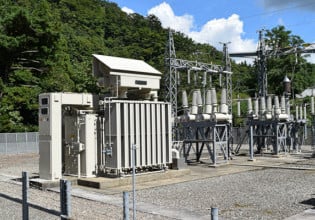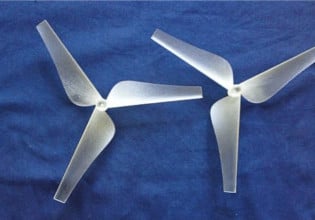Fairchild Semiconductor Introduces New Low-Voltage 30/40V MOSFETs for Automotive Designs
Fairchild Semiconductor has expanded its portfolio of AEC-Q101-qualified 30 and 40V MOSFETs to include 11 new devices. These low-voltage PowerTrench® MOSFETs are designed to optimize efficiency, performance and board space in automotive applications such as power steering and integrated starters/alternators, as well as in motor- and solenoid-driver designs.
Fairchild's 30/40V MOSFETs are ideal for providing the higher current density and lower power dissipation required by systems as they evolve from being mechanical to electromechanical according to the latest trends in the automotive market. With RDS(on) characteristics as low as 2.0 mOhms, Fairchild's 30/40V MOSFETs are among the lowest on-resistance devices in the industry. In addition to improving performance, these devices save board space since one of Fairchild's low RDS(on) MOSFETs replaces the two higher RDS(on) MOSFETs traditionally used in these designs. Furthermore, these MOSFETs are UIS rated and meet the rigorous AEC-Q101 automotive standard for ensuring "ruggedness" by providing a high level of reliability in harsh electrical environments.
"Fairchild's new 30V MOSFETs, such as our 2.3 mOhm FDB8860 device, provide approximately half the on-resistance of 55 or 60V MOSFETs, thus offering half the power dissipation of higher voltage devices," said Paul Leonard, Fairchild's Vice President of Automotive Power Products, Functional Power Group. "This low on-resistance means higher efficiency due to lower power losses and less heat generation in automotive designs. In addition to our new family of 11 devices for 30 and 40V applications, Fairchild's comprehensive portfolio of automotive MOSFETs will continue to expand to better help our customers meet the demands of this quickly changing market."
Fairchild's MOSFETs for automotive applications are certified to meet the ISO/TS 16949 standard. This standard is the result of a phased-in industry approach to develop a single standard for the entire automotive supply chain, including design/development, production, installation and servicing of automotive components. Developed by the International Automotive Task Force (IATF) for global recognition, it has become a mandatory set of requirements for many automotive OEMs in North America and Europe.
These products are lead (Pb)-free and meet or exceed the requirements of the joint IPC/JEDEC standard J-STD-020C and are compliant with the European Union requirements now in effect. The products are available now, with an ARO of 4 to 12 weeks.






